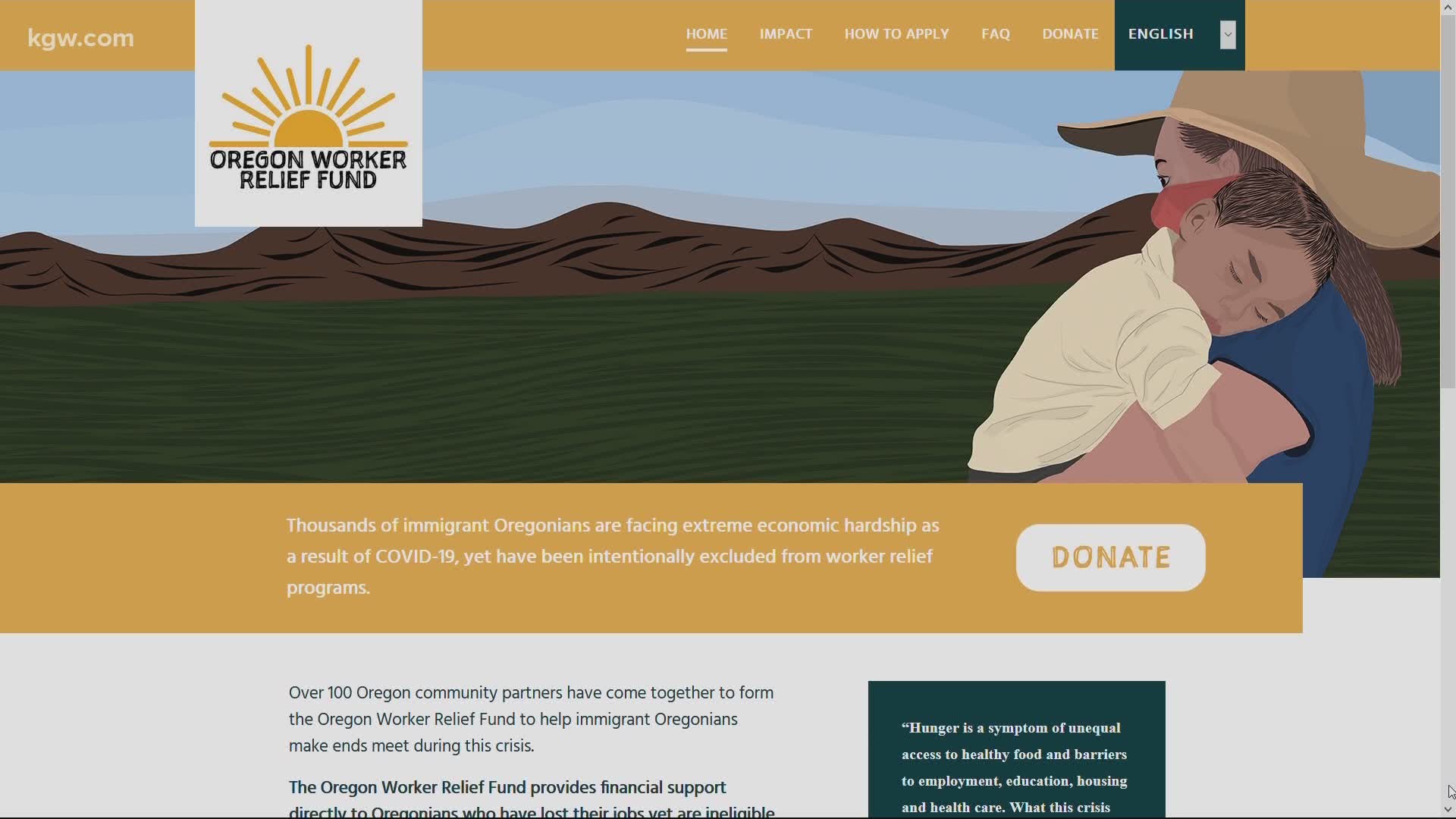KEIZER, Ore. — There's an effort to raise millions to help immigrants suffering physically and financially from the pandemic. It's why the state of Oregon and local advocacy groups started the Oregon Worker Relief Fund, which fills a gap and provides temporary financial relief for people who've lost wages due to the pandemic and aren't eligible for public benefits due to their immigration status.
Hector Rojas, an immigrant from Mexico, was one of the early beneficiaries of the program. He lost his job when he chose to stay home from work because he believes he caught COVID-19 in April.
Rojas spoke with KGW with translation help from Arturo Sarmiento, director of Radio Poder, where Rojas volunteers. Rojas said he was trying to be responsible and do the right thing by not going to work when he felt sick with COVID-19 symptoms. Flattened by fatigue and fever, Rojas could barely move.
"Es una enfermedad muy dificil explicar," Rojas said.
"He said this is a disease he never in his life before experienced. It was really, really bad," Sarmiento said.
Rojas said he couldn't get into a community clinic in Keizer to get tested in early April but he's sure he had COVD-19 because he was dealing with several symptoms. For three weeks, Rojas said he struggled to breathe and his heart raced rapidly.
At the time, he worked for a contractor at a meat-packing facility in Washington County. Rojas called and told them there was no way could he work feeling like that. Plus, he didn't want to get his coworkers sick.
Rojas came to the United States in 1996 and is undocumented. The federal CARES Act provided economic relief to Americans during the pandemic but doesn't apply to undocumented immigrants like Rojas. Without benefits or paid time off, he lost his job. Hector doesn't know if he was exposed to the virus at work or in the community.
"It's the fear of being undocumented - the one that prevents workers to get or look for medical care," Sarmiento said.
"For the Latinx population, there's distrust," Virginia Garcia Memorial Health Center Medical Director Dr. Laura Byerly told KGW.
Across the country, data shows COVID-19 and the economic fallout from the pandemic disproportionately hurts millions in the Latinx community for a number of reasons. They often work essential jobs in food processing facilities or agricultural settings and are unable to work from home. They often live in multi-generational households and are the sole breadwinner for their family.
"It's heartbreaking that our ability to have this abundance is on the backs of these essential workers who then are having to live in a way that puts them at higher risk," Dr. Byerly said.
In many factories workers can't distance from each other, everyone touches the same surfaces and many carpool and eat lunch together un-masked.
Oregon Health Authority epidemiologist and health advisor Emilio DeBess said those conditions can cause an outbreak.
"We need to remember this is a community-acquired infection,” DeBess said. "[There are] multiple possibilities here which is why it is up to the individual to say, 'I'm not going to work' and just eliminate the likelihood of transmission."
Many low-wage workers, without time off, fear losing their jobs if they miss shifts because of the coronavirus. With that in mind, the state and several community organizations started the Oregon Worker Relief Fund. State money and donations provide temporary financial support to people who've lost jobs and can't get public benefits because of their immigration status.
"They're kind of a forgotten group. They help us keep going as a community and we should really support them any way we can," DeBess said. "We have to be knowledgeable and provide that information to them so they can really survive. And at the same time eliminate the likelihood of passing that infection on to somebody else."
The relief allows Rojas to survive financially, but he still lives with the lingering effects of COVID-19.
More than $120 million is needed to help immigrants who qualify in Oregon. You can learn more about the fund, and donate, by visiting workerrelief.org.

